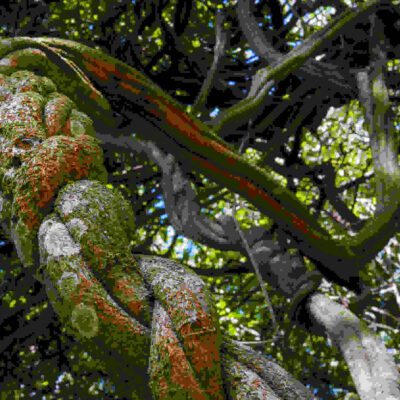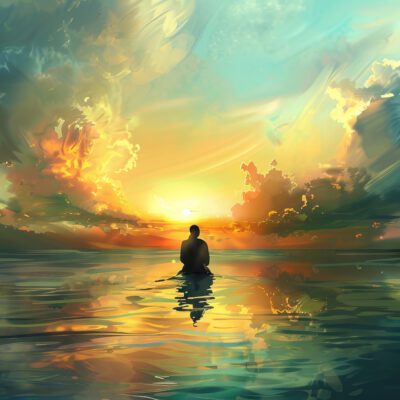In Search of More: Finding Meaning and Healing Through Torah and Mitzvot
It was a warm morning when I sat down for my weekly Tanya class with my mashpiach, Madeline. The sun filtered through the windows, casting a light on the pages of my book. As we delved into the text, our conversation took us to discussing how, for some, Torah and mitzvot have lost their appeal, becoming almost distasteful in their lives.
Madeline paused, then shared a story about a recent wedding she attended. Amidst the music and joy, she met a young woman, her eyes alight with curiosity. When this woman learned that Madeline was a teacher, she leaned in, eager to talk about spirituality and the quest to find oneself.
“I got divorced,” the woman began, her voice soaked in vulnerability. “Since then, I’ve left Orthodox Judaism. I became a chef and started traveling the world, cooking at different events, always in search of more. I’m having a great time, collecting experiences, and trying to figure out who I really am and what my purpose is.”
Her words had a mix of excitement and an unspoken longing for something deeper. When she finally asked, “How do you find yourself? How do you get to the essence and purpose of all being?” Madeline’s response was simple but profound: “Through Torah and mitzvot.” “At that moment,” Madeline recalls, “I saw the woman’s interest fade. Looking back, I should have responded with something light, although it was true, it might not have been what this woman was ready to hear.”
This experience made me think about how often observant Jews, and religious people in general, leave their faith because the teachings they received didn’t resonate with them. Sometimes they don’t fully leave, but their relationship with religion becomes strained, and they lose sight of the beauty that once drew them in. The commandments, once seen as a source of elevation, begin to feel like a burden.
Unfortunately, when someone experiences trauma or negativity in their life and past, they may associate that pain with a lack of divine presence and purity in their life. This can lead them on a lifelong search for meaning, trying to fill the void with something that was right in front of them all along.
In truth, even these challenging experiences can be the catalyst for a deeper connection with our Creator. And therein lies the beauty of choice. We can choose to see our experiences as blessings or as punishments.
The Blessing Within The Curse
In Parsha Re’eh, Moses presents the Israelites with a choice between blessing and curse.
“Behold, I set before you today a blessing and a curse. The blessing, that you will heed the commandments of the Lord your God, which I command you today; and the curse, if you will not heed the commandments of the Lord your God, but turn away from the way I command you this day, to follow other gods, which you did not know.”
It’s easy to see blessings in the good things that happen to us – the joys, the successes, the moments of clarity. But what about the curses? The moments of pain, loss, or confusion? We often view these as divine punishment or, worse, as evidence that God is absent from our lives. Yet, if we go deeper, we might discover that these “curses” are not curses at all. Instead, they are opportunities for growth, for reevaluation, for reconnecting with our essence and with God.
The real curse is not in the external difficulties we face but in the internal disconnection from our Creator and our true self that those difficulties can sometimes cause. When we lose sight of the divine in our lives, we also lose sight of who we are meant to be. The Torah and mitzvot are not just laws and traditions; they are the means by which we maintain that connection, especially – in the face of life’s challenges.
The Power of Choice: Reframing Our Experiences
Viktor Frankl developed his theory of logotherapy through his experiences during the Holocaust, where he witnessed unimaginable suffering. He concluded that the fundamental drive in human beings is the search for meaning. To achieve psychological and emotional well-being, people need to live a life filled with purpose. Frankl believed that when individuals find meaning in their suffering, they can transcend pain and experience personal growth. This ability to “see” pain as a mechanism for meaning and growth is the reframing necessary to navigate our challenges. It aligns with the teachings of the Torah, which suggest that even in darkness, there is a blessing hidden within.
When we encounter challenges, trauma, loss, or feelings of disconnection, they should not be viewed as punishments but as opportunities for growth and a deeper connection with the Creator. This perspective mirrors Frankl’s idea that suffering can be meaningful when we understand it as a catalyst for spiritual development.
This is not to diminish the reality of pain or the difficulty of facing hard moments, such as a traumatic upbringing or the loss of a loved one. These experiences are undeniably challenging, and the reasons behind them may be beyond our understanding. How could we ever comprehend the “why” of an abusive childhood or the death of a child? It’s not our place to seek answers to such questions. Instead, when faced with these tragedies, the more constructive approach is to ask ourselves: What can I do to elevate this experience? What is God asking of me through this event? While we cannot change the past, we have the power to shape the future.
For example, how can the loss of a beloved child ever be seen as a blessing? Such a loss is profound and heart-wrenching, and it’s essential to acknowledge the deep pain and grief that accompanies it. The child’s presence, no matter how brief, was a precious gift, and their soul, though it departed too soon, had a purpose that transcended time. Perhaps the blessing lies in the realization that we were privileged to know and love them, even for a short time. Their light, though now physically absent, can continue to shine through the love, kindness, and good deeds we carry out in their memory. It’s about transforming that indescribable pain into a force for good, allowing their legacy to bring infinite light and blessings to others. This process requires immense wisdom and strength, but it is this transformation that the true blessing within the curse is revealed.
In Search of More: Torah & Mitzvot in Healing
As I reflect on Madeline’s story, I am struck by how often people mistake the essence of Torah and mitzvot as mere rituals, rather than as path to divine connection. This misunderstanding can arise from various experiences, whether it’s the pain of a difficult upbringing or the disillusionment of unmet expectations. The young woman at the wedding, like so many others, seek fulfillment in worldly experiences, traveling, and exploring other spiritual modalities. She believed that by leaving behind the structure of religious observance, she would find freedom and self-discovery.
But what if the very structure she abandoned was not a cage, but a ladder? The mitzvot are not merely rules; they are tools—tools that help us to see the blessings in our lives, to transform the mundane into the holy, and to reconnect with our Creator.
In essence, the greatest blessing we can experience is the realization that we are a part of God; we can never stray too far. We have the power to choose how close we are to our Creator. The Torah and mitzvot are there to guide us back, to remind us of the closeness that is always within reach. And in that closeness, we find not only our Creator but also ourselves.









Leave a Reply